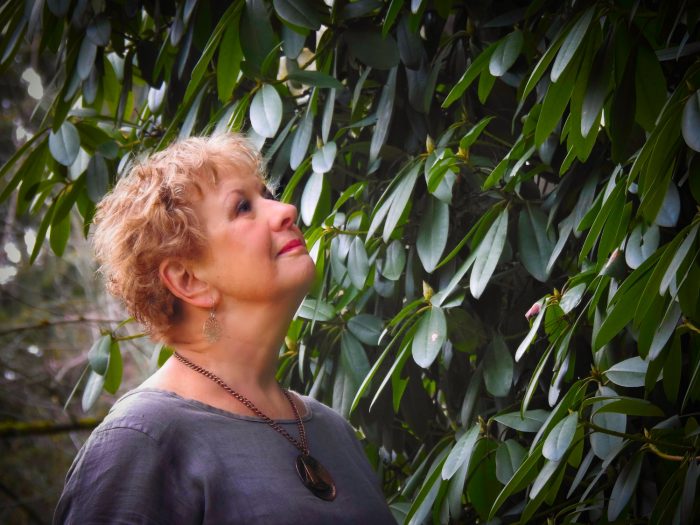I want certainty.
I want to know how long it will be that I need to stay home.
I want to know the secret to being stress-free during COVID-19.
Give me a list of tips and tools. I will follow them.
The thing is: Do NOT change the rules on me!
How do I manage if I can’t get it right? I need security that I am going to be ok.
Do I wear a face mask when I go out or not? Last week it was a not necessary. Yesterday, the news advised me to wear a mask even if I had no symptoms. How am I to know what to do?
Then, this week, I heard rumours that the STAY HOME requirement may be in place for several more months.
What?????
How will I do this? There seems to be so much chaos. I question if my physical and mental health can tolerate this surreal situation. Especially if it goes on indefinitely.
What about my husband’s parents in their Assisted Living facility? Senior citizens in care homes are already high risk and it is likely to get worse. And I have a 95-year-old father living in a care home in Winnipeg. How will he mange the isolation and loneliness without visitors? My mother died two years ago, and he is still grieving. I feel helpless.
I snuggle under my quilt with a cup of freshly brewed coffee and a chocolate chip cookie fresh out of the oven (baked by my husband who has a sweet tooth!). I am enjoying the cookie and underneath I am aware of my sorrow. I am reminded of the stages of grief that I studied as a student nurse. I was introduced to this theory by Dr. Elisabeth Kubler-Ross over forty years ago. Since then many others have researched and written about it.
Why am I drawn to thinking about GRIEF right now?
Many people may not be aware what emotions they are experiencing during the COVID-19 pandemic. Perhaps it’s fear. Or impatience. It could be anger. They are looking for someone or something to blame. They may be paralyzed by anxiety. Maybe their addictions are paramount in their minds. Could be that depression is worsening. Some are frantically trying to find a solution to their sense of insecurity. They think that stocking up on toilet paper and tinned goods will help get them through this nightmare. Some are just looking out for number one. Themselves. They forget that we are all connected and neglecting to consider others’ needs will only increase their risk.
The paradox is real. We are told to stay home and isolated and we are reminded that we are all connected.
Grief is present in the collective energy.
What do I even mean by that?
The entire planet is affected by COVID-19. That is the definition of a pandemic. The whole world is infected. We are all experiencing loss, uncertainty and a lack of control. We are grieving.
Some are mourning the loss of loved ones who have died. There are family members in the hospital, and no one can visit. Other losses include jobs, cancelled high school graduations, wedding parties postponed and family vacations delayed until who knows when. Many are struggling with their finances and adjusting to living together 24/7 without breaks from each other. This can lead to increased pressure on relationships and conflict in the home that is meant to be a safe place.
The stages of grief that I learned about so many years ago were focused on the sadness resulting from a loved one’s death. They also can be applied to other losses. The thing to know is that these stages do not move in a linear and predictable manner. They are a circular path through grief that has many switchbacks and detours and it is unique to each person.
The first stage is SHOCK and DENIAL.
This is what I felt a month ago, when I began to understand the magnitude of what was happening in the world and the new virus that was deadly and virulent. It seemed impossible that this was happening.
Yesterday when I realized I may be isolated in my home for several more months, I felt a sense of shock again. I was in a state of denial. It can’t be! How will we possibly do this for that long? Surely it is not true!
Then I noticed my ANGER rising. This is the next stage of grief. Because of my nursing experience and frontline knowledge of the spread of communicable disease, I am attuned to the importance of prevention and staying home. My anger boils over when I see people ignoring the directives for physical distancing. I hear of store clerks being abused when they try to enforce the guidelines. I am angry at the lack of knowledge that my 95-year-old father is receiving while residing in his Assisted Living home. He is unaware of the importance of hand washing and doesn’t know when to wash his hands. I spend our phone calls teaching him and impressing upon him why this is crucial to his health. I become his nurse, rather than his daughter.
This is when I realize that ANGER is healthy when felt fully, and it is the key to our strength and power. Anger is an indication of the intensity of my love. It is because of my deep love that I am a warrior in doing my part to protect my loved ones.
So, I feel it all the way through my body and take time to journal and vent to the trees on my walk in the woods. When I am done, I am ready to ask myself, ‘what is under my anger?’ I see fear. I welcome it and thank it for its concern for me. I see the fear in others who are acting selfishly. Instead of blaming them, and attacking them, I feel compassion and choose kindness.
Then comes the BARGAINING phase of this model.
This is where I want to ‘make a deal’ with the powers that be. Could be that I bargain with God, or the government, or my own self.
I think things like:
‘If I am vigilant and tell others to stay home, we will be okay.’
‘How about if I discipline myself at this time and push myself to exercise every day? That will prove that I am worthy of being healthy.’
I so desperately want to keep my family and myself from getting the virus. Or spreading it to the vulnerable in our community. This stage of bargaining is an effort to take control. As time goes by, I see that it doesn’t help me feel any better, and nothing changes as a result.
DEPRESSION is the next stage in the phases of grief.
A few mornings ago, I work up feeling blue. When I feel depressed, I often shame myself, thinking I should be more positive and be grateful. After all, my life is a lot better than many others surely, I should be able to snap out of it quickly.
I am reminded that feeling depressed is not a sign of mental illness in this case. It is an appropriate response to great loss. Of course, many of us will have days where we feel lethargy, sadness and depression. This is normal. Notice your sadness and don’t make yourself wrong.
What a relief to hear that. I am then able to give myself the gift of rest, of sharing my mood with a trusted friend on our Zoom call and having compassion for myself. I slow down, and hug myself, talking into my soul as I would when I comfort a dear friend who is hurting.
I see that the next step in the phases of grief is ACCEPTANCE.
Some days I think I have achieved a level of acceptance. Then I notice it comes and goes, just like the other stages. Acceptance is not about everything being alright, or life going back to normal. Just the opposite. It is about accepting the ‘new normal’. I may not like it, and I may struggle with believing that this is how life is going to be. I am being invited to learn to live in the reality that is happening now.
Acceptance is not a passive stance. As I choose to surrender to what I do not have control over and let go of ‘wishing it wasn’t so’, I then have the energy to focus on what is true for me right now. I give myself permission to feel the shock and denial. I allow the anger to flow through me and I observe myself bargaining with the Universe in order to make it better. I have compassion for my depression, and I recognize this is part of being human.
Here we are. Together on an uncharted path. We have not been here before. This is huge. This is an opportunity to feel it all. To learn new things about ourselves and each other.
My musings today are meant to be an invitation to you, my dear readers, to step back, take a deep breath, and get curious about how grief shows up for you. Because, one thing I do know, you are in the swirl of messy emotions along with the rest of us whether you know it yet or not. Having this awareness will support you in not only surviving this time but thriving.
I invite you to download a FREE Guidebook called Taming the Terror of Transition.


 Share on bsky
Share on bsky





Read 0 comments and reply